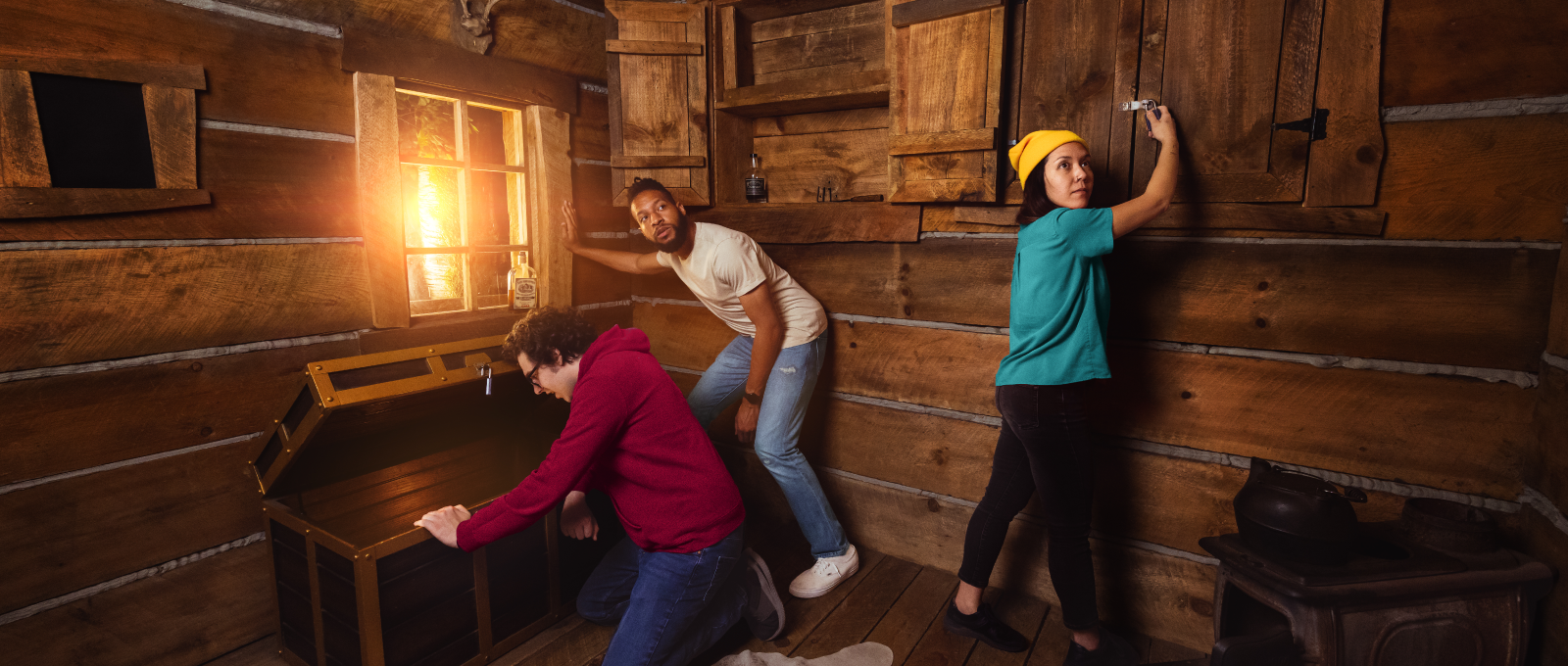Thrilling Escape Room in Minneapolis Mall of America-- Reserve Now
Thrilling Escape Room in Minneapolis Mall of America-- Reserve Now
Blog Article
Group Methods: Just How to Team up Successfully in a Retreat Room
Teams need to actively listen to each participant's insights, appoint roles that straighten with individual staminas, and maintain regular check-ins to ensure focus and stop redundancy. By promoting a setting that values cohesion and adaptability, teams can significantly enhance their performance and success rates.
Establish Clear Interaction

To assist in clear communication, it is necessary to assign a central factor of contact for details circulation. This role includes summarizing findings and recommended methods to ensure every person stays on the same web page. Additionally, embracing a systematic technique to conversations can avoid disorderly exchanges. For example, brief, concentrated updates from each staff member can maintain the team informed without frustrating them with details.

Designate Roles Purposefully
While clear communication establishes the foundation for reliable team effort, assigning functions strategically makes sure that each employee's strengths are made use of efficiently. In a retreat space circumstance, the time-sensitive and complicated nature of obstacles requires an efficient method to job delegation. By identifying and leveraging specific proficiencies, groups can optimize their analytic capabilities and improve total performance.
First, assess the special abilities and attributes of each individual. For instance, someone with an eager eye for information might stand out in finding covert things, while a logical thinker might be much better matched to resolving challenges - best escape room. It's equally crucial to have a leader that can oversee progress, handle the timeline, and make definitive calls when necessary. This function usually requires strong organizational and interpersonal abilities.
2nd, ensure that roles are flexible and versatile. As brand-new obstacles arise, the group needs to be able to pivot, reapportioning jobs as called for. This versatility assists preserve momentum and avoids bottlenecks that can happen due to rigid role jobs.
Inevitably, a strategic strategy to duty task not only maximizes the toughness of each group member but additionally promotes a cohesive environment, driving the group towards a successful retreat.
Use Diverse Skills
Acknowledging and harnessing the varied skills within your group can considerably boost your performance in a retreat room. Each group member brings one-of-a-kind staminas to the table, and properly leveraging these abilities can quicken analytical and boost general performance. A team member with solid analytical skills may succeed at figuring out complicated codes or patterns, while an additional with keen observational capabilities might quickly identify surprise clues that others may ignore.
Motivate group participants to articulate their insights and ideas quickly, guaranteeing that all potential solutions are considered. Additionally, appointing jobs that straighten with each participant's staminas can avoid bottlenecks and ensure that progress is continual.
In addition, variety in skills typically translates to diversity in assuming designs, which is indispensable in a getaway room setup. While some challenges might need logical thinking and accuracy, others may benefit from creative and association of ideas. By identifying and leveraging this variety, teams can resolve a broader variety of difficulties a lot more successfully, therefore boosting their possibilities of a successful getaway.
Manage Time Properly

First, designate preliminary minutes for a quick study of the area. Determine visible puzzles and divide jobs based go to this web-site upon team members' toughness, making certain that no one is idle. Set inner time checkpoints to review progression regularly; for example, aim to have half the problems fixed by the mid-point of the game. This practice can aid keep the team concentrated and protect against time from sliding away undetected.
In addition, prevent one-track mind. If a puzzle is taking also long, turn team participants or go on to another obstacle, returning later with fresh perspectives. Interaction is vital-- keep everybody updated on fixed challenges and remaining jobs to avoid redundant initiatives.
Finally, make use of any type of tips or clues moderately yet tactically - best escape room. Recognizing when to request aid can save valuable time. By adhering to these time monitoring principles, groups can significantly enhance their chances of an effective and delightful escape space experience
Debrief and Mirror
Reflection is a crucial aspect of team growth and improvement in the context of escape spaces. As soon as the challenge is completed, whether efficiently or otherwise, it is important for the group to participate in a structured debriefing session. This procedure permits group members to evaluate their efficiency, determine toughness, and determine areas for renovation.
Start the debrief by reviewing what went well. Highlight details instances of efficient interaction, analytical, and partnership. Recognizing these positive actions reinforces them and encourages their repetition in future difficulties.
Go over minutes of complication, miscommunication, or ineffective strategies. Urge an open and positive discussion where team participants can share their point of views without fear of criticism.
Conclusion
In verdict, effective partnership in a getaway space is based upon clear communication, critical function assignments, the reliable usage of varied skills, and competent time management. Normal check-ins and structured debriefings are crucial for preserving focus and promoting constant enhancement. By creating imp source a natural and adaptive group setting, the probability of successfully resolving challenges and accomplishing the objective of running away the area is dramatically enhanced. This approach not just makes certain success yet likewise promotes cumulative growth and knowing.
Report this page